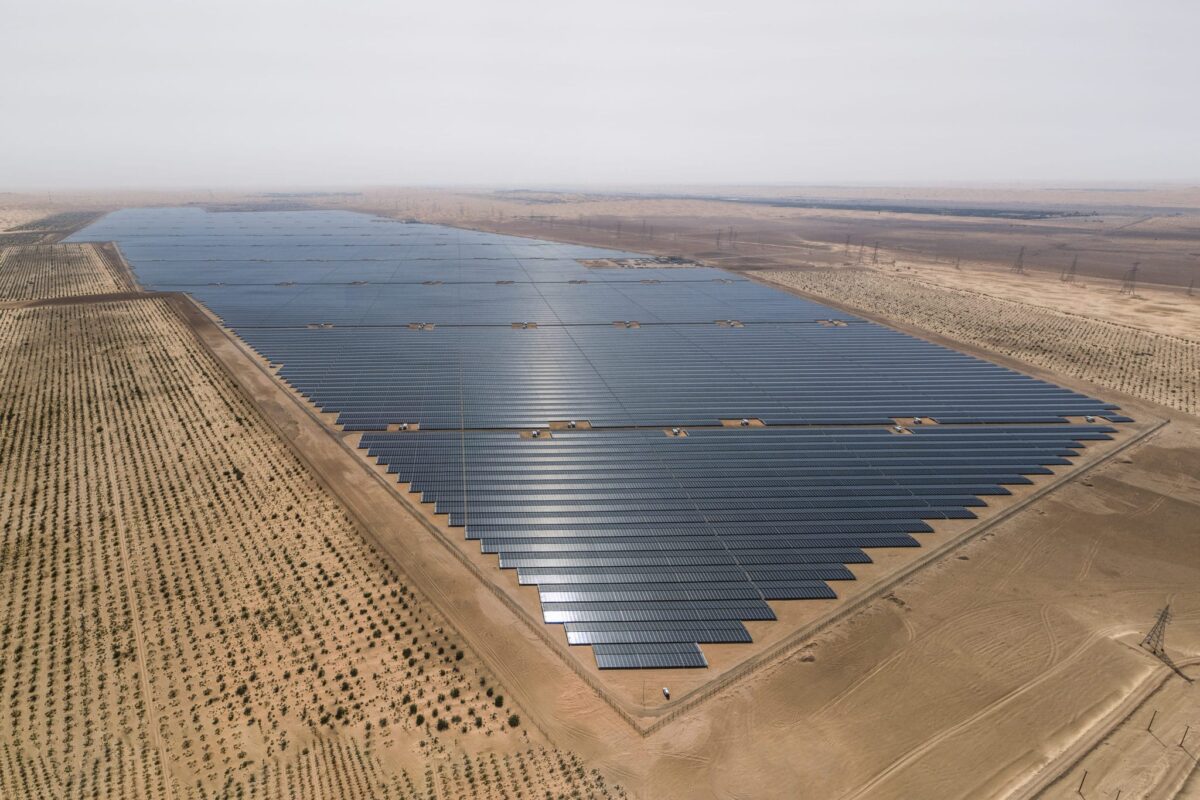
A significant step towards enhancing its renewable energy landscape has been initiated by Abu Dhabi, as it officially announced the launch of a competitive bidding process for the 1.5-gigawatt (GW) Al-Zarraf solar independent power project (IPP). This initiative aligns with the emirate’s ambitious targets to achieve net-zero greenhouse gas emissions by 2050, while simultaneously increasing the share of clean energy in its overall energy mix. The Al-Zarraf solar project is expected to play a vital role in bolstering Abu Dhabi’s renewable energy capacity and reducing its reliance on fossil fuels.
The bidding process was unveiled by the Abu Dhabi Department of Energy (DoE) and is managed by the Abu Dhabi Power Corporation (ADPower). This project is part of the larger strategy outlined in the Abu Dhabi Climate Action Strategy, which aims to achieve a renewable energy share of 50% by 2030. Al-Zarraf will contribute significantly to this target and position Abu Dhabi as a leader in sustainable energy development in the region.
Key stakeholders in the energy sector view the Al-Zarraf project as a pivotal component of Abu Dhabi’s broader energy transition strategy. The emirate is already home to the Mohammed bin Rashid Al Maktoum Solar Park, one of the largest solar energy facilities in the world, which has set a precedent for similar projects across the UAE. The collaboration between government entities and private sector players will likely drive innovation and efficiency in solar energy generation, ultimately contributing to a more sustainable future.
The competitive bidding process for the Al-Zarraf solar IPP is expected to attract international investors and developers. This opportunity not only underscores the UAE’s commitment to renewable energy but also positions it as an attractive destination for foreign investment in the energy sector. The DoE has emphasized the importance of transparency and fairness in the bidding process, aiming to create a competitive environment that encourages the best practices in solar energy development.
Industry experts predict that the Al-Zarraf project will utilize advanced solar technology, including bifacial solar panels and energy storage solutions, to maximize efficiency and output. These innovations are essential for ensuring that solar energy can reliably meet the emirate’s energy needs, especially during peak demand periods. Furthermore, the integration of smart grid technology will enhance energy management and distribution, aligning with global trends towards digitalization in the energy sector.
The project is anticipated to create numerous job opportunities during both the construction and operational phases. Local workforce development is a critical component of Abu Dhabi’s strategy, and initiatives to train and upskill Emiratis in the renewable energy sector are already underway. This focus on local talent aligns with the UAE’s broader goals of economic diversification and sustainable development.
As the bidding process progresses, potential investors and developers will be required to submit their proposals by the specified deadline. The evaluation criteria will focus not only on technical expertise and financial capability but also on the bidders’ commitment to sustainability and community engagement. This holistic approach reflects the growing recognition of the social and environmental dimensions of energy projects.
Abu Dhabi’s initiative comes at a time when global demand for renewable energy solutions is surging. The International Renewable Energy Agency (IRENA) has reported a substantial increase in renewable energy capacity worldwide, highlighting the need for countries to accelerate their transition towards cleaner energy sources. The Al-Zarraf solar project stands to enhance Abu Dhabi’s reputation as a pioneer in renewable energy, inspiring other nations to follow suit.
With an eye on the future, Abu Dhabi aims to solidify its position as a regional leader in sustainability and innovation. The Al-Zarraf solar IPP is a crucial piece of this puzzle, embodying the emirate’s dedication to harnessing renewable energy resources while fostering economic growth. As the competitive bidding process unfolds, stakeholders from around the globe will be keenly observing the developments, eager to participate in what could be a landmark project in the Middle East’s energy landscape.
In addition to its environmental benefits, the Al-Zarraf solar project is projected to enhance energy security for Abu Dhabi. By diversifying its energy sources, the emirate can mitigate risks associated with fluctuating oil prices and geopolitical uncertainties. This strategic move towards renewables not only fortifies the local energy landscape but also contributes to regional stability by fostering energy independence.
The Al-Zarraf solar IPP serves as a testament to the UAE’s proactive approach to addressing climate change. With global pressure mounting for nations to reduce their carbon footprints, Abu Dhabi’s commitment to sustainable energy solutions will likely resonate with international stakeholders. The successful implementation of the Al-Zarraf project could pave the way for further investments in renewable energy infrastructure across the region.

